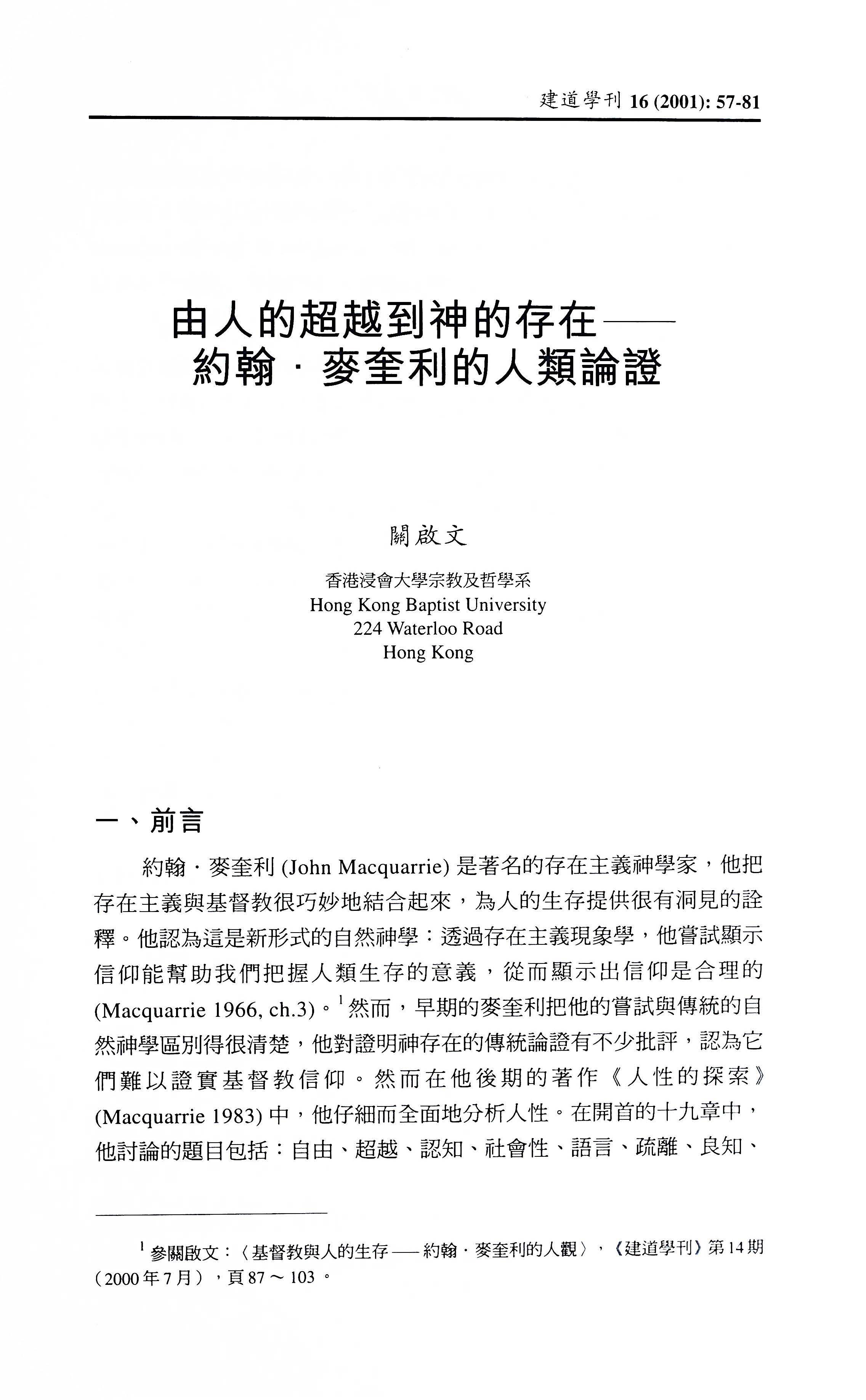由人的超越到神的存在──約翰.麥奎利的人類論證/關啟文
撮要
約翰•麥奎利(John Macquarrie)是著名的存在主義神學家,他早期對傳統的自然神學抱批判的態度,然而後期他受到米曹(Basil M i t c h d l )的影響,接受一種支持上帝存在的累積論證。他整本《人性的探索》就是用來演繹這支持上帝存在的人類論證(anthropological argument for the existence of God) 。簡言之,這論證嘗試顯示人的生存及人生現象超越自然界,所以很自然指向超越的上帝作為人的 超越的源頭和根基。
作者在本文解釋及批判性地評價構成麥奎利的人類論證的六個論點,他指出它們的問題,並論證這些問題不是不可補救的。接著作者用貝爾斯理論重新建構人類論證,所得的結論是:雖然這論證並不能決定性地證明神的存在,但它是不可忽視的,並且也可成為支持神存在的累積論證的一個重要部分。
ABSTRACT
John Macquarrie is a famous existentialist theologian. In the early years, he was critical of traditional natural theology. However, later he came under the influence of Basil Mitchell, and accepted a kind of cumulative case for the existence of God. His entire book, In Search of Humanity, is devoted to the anthropological argument for the existence of God. In brief, this argument tries to show that human existence and experiences transcend nature. They cannot be adequately explained by naturalism, and naturally call for the transcendent God as the source and ground of human transcendence.
In this paper, the author expounds and critically evaluates Macquarrie’s six theses which constitute his anthropological argument. The author points out various problems with Macquarrie’s theses, yet tries to argue that they are not irremediable. The author then uses Bayes’ theorem to reconstruct the anthropological argument. He concludes that the argument is a promising one. Though it is by no means conclusive, it may form an important part of the cumulative case for the existence of God.
原載於《建道學刊》16期(2001年7月),頁57-81。
Latest Articles
新手牧者研究計劃(三):新手牧者的身心靈狀態 / 盧慧儀
2025 年 11 月 19 日
個體與關係:滕近輝思想中「深化」的靈性觀 / 倪步曉
2025 年 11 月 18 日
香港九龍塘基督教中華宣道會之起源和發展史/陳智衡
2025 年 10 月 20 日
Highlights
[電子書]困境與抉擇:「建道研究中心30週年誌慶」跨學科研討會論文集/廖炳堂、倪步曉主編
2025 年 1 月 2 日
從梧州到長洲:建道神學院125年的挑戰與恩典 / 陳智衡
2023 年 10 月 1 日
微小教會的見證/高銘謙
2023 年 6 月 1 日







